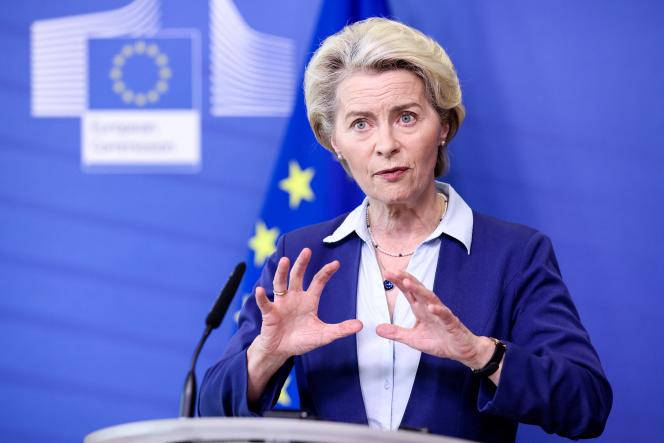“We are in a completely different world than in 2020, when the multi-year budget [2021-2027] of the European Union [UE] has been negotiated”summarized Ursula von der Leyen, the President of the Commission, presenting, on Tuesday 20 June, the request for a budget extension that she is making to the Twenty-Seven.
Over the course of the successive crises over the past three years, the EU has acquired new skills, in the area of health, for example, during the Covid crisis. It is also committed alongside Ukraine, which it helps financially and militarily, and to which it still wishes to allocate 50 billion euros (including 33 billion in the form of loans) by 2027. Without forgetting the management of migration which requires new means and the European recovery plan of 750 billion euros, which the Twenty-Seven adopted to deal with the ravages of the pandemic, and which will have to be reimbursed.
Increase in interest charges
That’s not all. The resurgence of inflation is eating into the budget. At the same time, it pushes up the charges, since the salaries of European civil servants and commissioners are indexed to inflation. The rise in rates, meanwhile, increases the cost of the European recovery plan. “Interest charges will cost between 17 and 27 billion more than expected by 2027”notes Macronist MEP Valérie Hayer.
In this context, the Commission is asking the 27 to add 65.8 billion euros to the 1,214 billion euros entered in the 2021-2027 budget. “If we take inflation into account, in reality the budget is going down”confirms a European diplomat.
The 27, who must vote unanimously on budgetary questions and who, too, must make savings, while their debt has soared in recent years, moderately appreciate this request. The most frugal among them, namely the Netherlands, Germany or even Austria and Sweden, should contest its legitimacy, except, no doubt, for Ukraine.
They will not fail to denounce the increase in the Commission’s administrative costs (1.9 billion) and the ten billion euros that it wants to allocate to “resilience and competitiveness” of the economy, instead of the European sovereignty fund which it had planned to create and which it abandoned for lack of resources.
As for the own resources that the Commission must establish – income which would be added to the contributions of the Member States – to reimburse the recovery plan, they are far from certain. The Community executive proposes to recover part of the revenue from the ETS (Issuance Trading Systemthe EU’s CO₂ emissions trading system) and carbon tax, and to create a levy on corporate profits, which, as one EU diplomat put it, “has no chance of being validated by the Member States”. The discussion has only just begun but it promises to be tough.
